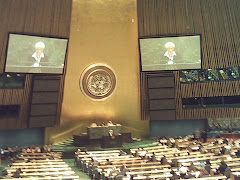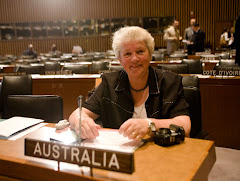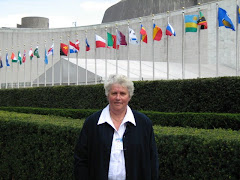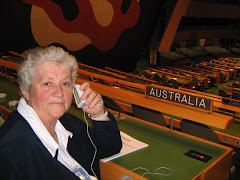Sixty-third General Assembly
First Committee
11th Meeting (PM)
FIGHTING BIOLOGICAL WARFARE TURNS CORNER AS BIOLOGICAL WEAPONS CONVENTION EDGES
CLOSER TO UNIVERSALIZATION, FIRST COMMITTEE HEARS IN THEMATIC DEBATE
Potential of Missiles to Deliver Payload of Mass Destruction Weapons Quickly,
Accurately Makes Them Major Political, Military Issue; Three Related Drafts Tabled
JOANNA GASH ( Australia ), chair of the Australia Group which works with 40 other countries and the European Commission in strengthening chemical and biological export control lists, said that the Chemical Weapons Convention had emerged as a cornerstone of the multilateral non-proliferation and disarmament architecture.
It was crucial to efforts to halt the proliferation of chemical weapons. Australia was encouraged by continuing progress in the destruction of chemical weapons, which had resulted in the verified elimination of more than one third of declared stockpiles. One former possessor State had completed elimination of all chemical weapons. She urged the other five possessor States to make every effort to meet their extended deadlines for destruction.
At the same time, she regretted that the Second Review Conference of the Chemical Weapons Convention in May had experienced a difficult negotiating environment, which had prevented constructive discussion of many of the challenges facing the treaty and, thus, agreement by States parties on how to deal with them.
It was now vital that all of them look to the future to ensure that that Convention adapted to developments in science and technology. “We must continue to strive for the full and effective implementation of declaration and inspection requirements to activities not prohibited by the Convention”, she urged.
Asserting that the Biological Weapons Convention was strengthening global defences against biological weapons and bioterrorism, she noted the strides made by the Convention, with an increase from 155 to 162 State parties with an additional 13 signatories.
She congratulated the three States that had acceded to the Convention this year -- Zambia, Madagascar and the United Arab Emirates.
Despite those monumental steps, more needed to be done to counter weapons of mass destruction delivery systems, especially absent an international treaty covering ballistic missile proliferation.
Australia and the Republic of Korea would submit a resolution on the prevention of illicit brokering -- black market activity -- by which the perpetrators sought to avoid the restrictions set out in the Biological and Chemical Weapons Conventions and the export control regimes.
Tuesday, October 21, 2008
Subscribe to:
Post Comments (Atom)






No comments:
Post a Comment